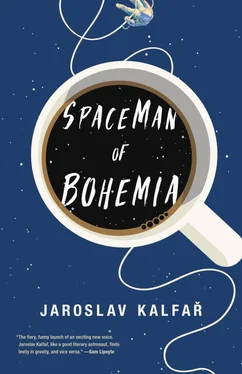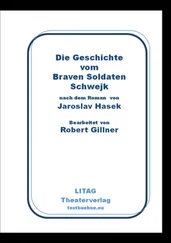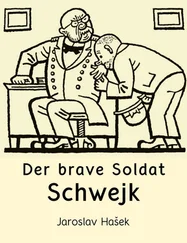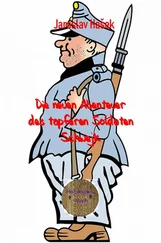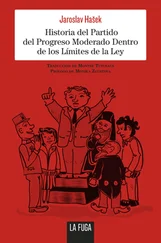Jaroslav Kalfař
SPACEMAN OF BOHEMIA
For my grandfather Emil Srb
A house in ruins. Through the cracked walls
spread gluttonous ferns,
and the parasitic bands of lichen.
On the ground sprouts delphinium,
a nettle forest. The poisoned well
a water trough for rats.
The frail apple tree, split by lightning,
forgets whether it once bloomed.
On clear days, singing goldfinches
fall into the ruins. On sunlit bright days
a clock’s arc lives
on the facade, capricious and joyful
the shadow of time dances,
and recites solemnly to the skies:
Sine sole nihil sum.
For everything is a mask.
—Karel Toman, “The Sun Clock”
MY NAME IS JAKUB PROCHÁZKA. This is a common name. My parents wanted a simple life for me, a life of good comradeship with my country and my neighbors, a life of service to a world united in socialism. Then the Iron Curtain tumbled with a dull thud and the bogeyman invaded my country with his consumer love and free markets.
Before I became an astronaut, the bogeyman and his new apostles asked if I’d like to change my name to something more exotic. More Western. Something befitting a hero.
I refused. I kept it as it was: common, simple.
SPRING OF 2018. On a warm April afternoon, the eyes of the Czech nation gazed from Petřín Hill as space shuttle JanHus1 launched from a state-owned potato field. The Czech Philharmonic Orchestra wafted the national hymn between the city’s Gothic towers, accompanying the countdown until, finally, the crowd gasped as the shuttle sucked and burned its cryogenic propellant and exploded upwards, all nine million kilograms of it, give or take the eighty kilograms of its single human inhabitant.
In a flash, JanHus1 branded the hundred spires of the city with a dove-like stencil. Citizens and tourists alike followed the shuttle on its spherical climb until at last it vanished in the sunrays, reduced to a shadow captured by a few sharpshooting camera lenses. Leaving the vessel to its new fate in the heavens, the chattering citizens then descended Petřín Hill to quench their thirst for beer.
I witnessed my nation’s triumph on a flickering, soundless monitor. It took about an hour to get used to the vibrations of the seat savagely bruising my buttocks. One of the chest constraints had cut through my suit and into my areola, and I could not ease its grip. The launch chamber in which I sat was the size of a broom closet, a collection of phosphorescent screens, anorexic panels, and the spaceman’s throne. The machinery around me, unaware of its own existence, quietly carried me away from home, indifferent to my discomfort. My hands shook.
I had refused to drink water before the launch, despite the insistence of my handlers. My ascent was the fulfillment of an impossible dream, a spiritual experience that could not be matched. The purity of my mission would not be stained by such an undignified gesture of humanity as urine making its way into my Maximal Absorption Garment. On the screen before me, my people waved flags, clutched sweating bottles of Staropramen, traded koruna bills for plastic shuttles and spaceman figurines. I searched for the face of my wife, Lenka, hoping to catch one last glimpse of her sorrow, a reassurance that I was loved and feared for, and that our marriage could withstand my eight months of absence, or worse. Never mind that my throat was parched, that my tongue scraped along the rough flesh of my gums, that the muscles in my body tensed and cramped as every basic comfort of human existence disappeared mile by mile, sliced away by the layers of atmospheric divisions. I owned these moments of history. Schoolchildren would repeat my name for centuries to come, and a sculpture of my likeness would inevitably join the lineup at Prague’s wax museum. Already the billboards littering the horizons of Bohemia displayed my face looking upwards with practical gusto. Gossip magazines had suggested that I kept four mistresses and struggled with a gambling problem. Or that the mission was fake and I was merely a computer-generated image voiced by an actor.
Dr. Kuřák, my state-appointed therapist, had insisted that my launch would be filled with pure terror—a lone human being traveling to the unknown, living at the mercy of technology, indifferent and silent. I did not like Dr. Kuřák. He stunk of pickles and was a pessimist disguising himself as a man with experience. He had been in charge of preparing my fragile psychology for the mission, but mostly he had taken notes on my fears (food poisoning; caterpillars; the existence of life after death, as in the possibility that life could not be escaped) with a ferocity that suggested he hoped to pen my official biography. He had recommended that during my ascent I consume my favorite childhood candies (Tatranky, layered wafers dipped in chocolate, which I’d stashed in the compartment to my left) and ponder my scientific duties to the world, the immense privilege I was honored with, to bring the Czechs their greatest discoveries since Jan Evangelista Purkyně had recognized the individuality of fingerprints, or perhaps since Otto Wichterle had invented the soft contact lens. My imagination embraced these ego arousals, and into the silence of the chamber I began to whisper my Nobel Prize acceptance speech, until my thirst became unbearable. I violated my resolve and pressed the H 2O switch, and the liquid flowed from the container underneath my seat to a straw attached to my shoulder. I was subject to my own physicality, a dwarf climbing a beanstalk to arm-wrestle the colossus, a cellular structure of banal needs for oxygen, for water, for the release of waste. Banish the dark thoughts, drink your water, I whispered as shots of adrenaline sharpened my senses and dulled the aches of my body.
Nearly a year and a half ago, a previously undiscovered comet had entered the Milky Way from the Canis Major galaxy and swept our solar system with a sandstorm of intergalactic cosmic dust. A cloud had formed between Venus and Earth, an unprecedented phenomenon named Chopra by its discoverers in New Delhi, and bathed Earth’s nights in purple zodiacal light, altering the sky we had known since the birth of man. The color of the nighttime universe as observed from Earth was no longer black, and the cloud rested, perfectly static. It posed no immediate danger, but its stoic behavior tantalized our imaginations with dreadful possibilities. Nations scrambled to plan missions that would allow them to capture the particles of the mysterious Chopra and study these microscopic pieces of worlds beyond our own for chemistry and signs of life. Four unmanned shuttles had been sent to test Chopra’s qualities and to carry samples back to Earth, but the probes had returned with empty bellies and no useful data, as if the cloud were a fata morgana, a collective dream of billions.
The next step was inevitable. We could not trust machines with the mission. A remote-controlled shuttle transporting German chimpanzee Gregor was dispatched to fly through the cloud and ensure that, with adequate protection, a human inhabitant could survive within Chopra long enough to observe and analyze samples manually.
Gregor had returned to his laboratory cage unharmed just as a new behavior was observed in the cloud: it began to consume itself, the mass of its outer layers dissipating and vanishing inside the thicker core. Some spoke of antimatter, others assigned the cloud organic properties. The media offered speculations—which of the world’s governments would be brazen enough to send humans four months from Earth, toward a cosmic dust cloud of unknown and potentially lethal particles? Whispers, nothing but whispers from the Americans, the Russians, the Chinese, even the Germans, who had declared themselves the most serious about Chopra, given their offering of Gregor.
Читать дальше
